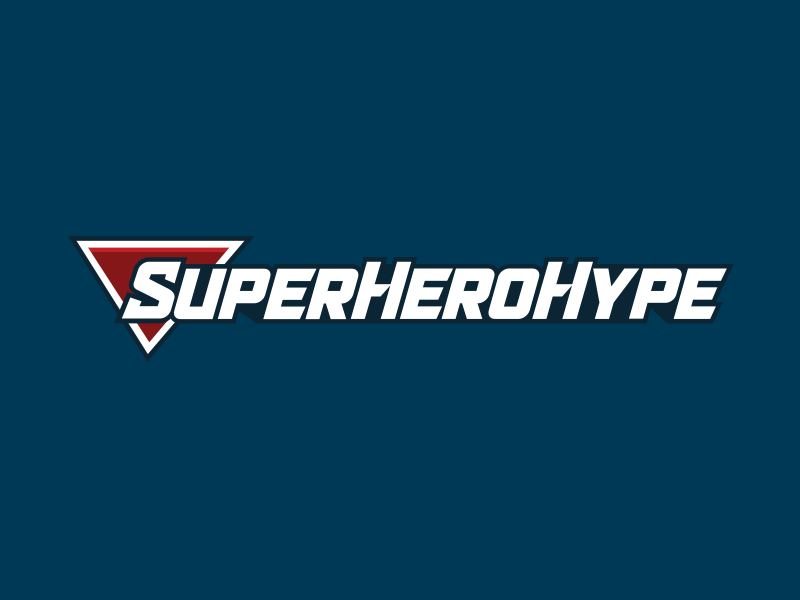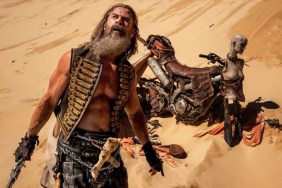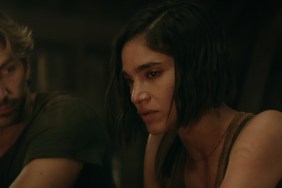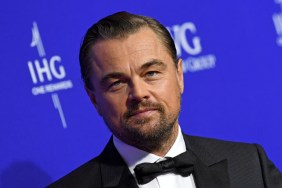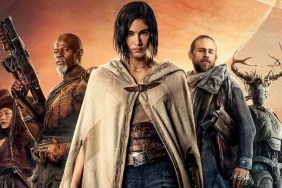
Most people don’t know what goes into being an assistant director, but without a good one, most movie sets would be complete and total chaos. Good thing for V For Vendetta director James McTeigue that his experience has included working on two of the biggest sci-fi action trilogies of all time, “Star Wars” and “The Matrix”. The Aussie-born director worked on both of the blockbuster franchises as a first assistant director to George Lucas and the Wachowski brothers, the latter whom assigned him the task of directing their adaptation of the graphic novel by Alan Moore and David Lloyd.
McTeigue’s first film as a director takes place in a future London besieged by a fascist government right out of George Orwell, a setting that produces the masked vigilante freedom fighter known as “V.” The adaptation was written by Larry and Andrew Wachowski, co-produced along with Hollywood action maven Joel Silver.
Despite working on so many great films, McTeigue remained very down to earth as he spoke to SuperHero Hype! about this ambitious project.
SHH: You have an interesting accent. What’s your background?
James McTeigue: I was brought up in Sidney, Australia and I guess I came to live here 3 1/2 years ago, but I just spent the last 13 months away making the film.
SHH: And you also made the “Matrix” films down there in Australia?
McTeigue: Yeah, the first one we made completely down there and then the second one, mainly “Reloaded”, we did preproduction in Los Angeles and then we shot for four months up in San Francisco, so I was probably in L.A. and San Fran for about a year, and then we went down and finished the rest of the film off down in Australia for a year.
SHH: When did you first learn that “V For Vendetta” would be your first feature as a director and how were you approached to direct it?
McTeigue: I was actually doing some post-production work on the third “Matrix” film. Me and Larry and Andy have just been friends, and we got to talking about V over dinner one night, and then I went back and read the graphic novel and went “this is really great”… so prescient and timely and it asks such great questions. It would be good to do something with it, and they said, “Actually, we wrote a script for it.” And then they gave us the script, and I read it and thought it was amazing, and said “Well, that was pretty cool,” and they said, “How would you feel about directing it and we’ll produce it? We’ve been doing these Matrix films for ten years now and we’d like to have a bit of a rest, but we want to stay involved in filmmaking.” So that’s what we did, and it was great. Joel owned the rights, and we all had a relationship before, so we took it from there with the other producer, Grant Hill, who also did some Matrix stuff.

SHH: As far as modernizing the original story, which took place in the late ’90s, was that all in the script or were you involved in that?
McTeigue: It was done in script, and it was very purposefully done in the script, because I think the great thing about the graphic novel is the questions that it asks, the ideas and the intent, and we thought it would be good, because that was written on the back of a certain period of time in Great Britain. We thought that we could make a much larger comment about things that were going on now and things that were going on in the past, and probably things that will continue going on in the future if we modernized it a bit, made the back story sort of roundabout now a few years gone past and projected it into the future. That’s what we did. I got into the production design. I was very specific about how I wanted it to look. I wanted it to resonate to now, so with the production designer Owen, some touchstone things about now, but it was also into the future.
SHH: Was there ever any talk about setting the movie in the United States?
McTeigue: Because we wanted to keep true to the graphic novel, and it’s a very London-centric story. I really liked the fact that it was set in London, so we never had a discussion about changing it, to tell you the truth. The other thing I liked about it being in London, at the point that it’s set in London, and you abstract it away from a country like America, you can make a much larger comment about things that are going on.
SHH: I assume you were heavily involved in the casting.
McTeigue: You know, there’s a couple things that go into that. You have the Wachowski Brothers and you have Joel Silver, it gives you the ability to go for a caliber of cast that maybe as a first time director you wouldn’t get. Also for me, I was lucky that I grew up in Australia and I had this funny cross-cultural hybrid of U.S. television and film, but also English television and film and literature, because that was the mother country. So I’d always followed English film a lot, so some of the actors I went for, like Stephen Rea as Finch, he was my first choice, and Sinead Cusack, then Stephen Fry, he was a first choice, as well. I was lucky I was casting out of England, because there are so many amazing actors, and then I knew both Natalie and Hugo from different experiences, so I got lucky first time out.
SHH: So why did you pick Natalie to play Evey Hammond?
McTeigue: I guess for me, I worked with Natalie before, so there was a certain shorthard I have with her, but if you’re in the room with Natalie Portman for more than 30 seconds, you understand how bright she is, and how erudite. I really think you need an actress that can take you on the journey, because Evey’s character really starts in one place and ends up in another. In a lot of ways, she’s the audience’s narrative guide, and she needs to have a believability to her and I think Natalie really embodies that.
SHH: What about the change in actors who played V? Did you end up keeping any of the scenes shot with James Purefoy behind the mask?
McTeigue: I did a bit of reshooting, but the thing with James is that you spend 20 years or more learning how to use your face. That’s your ultimate tool as an actor, and then when that’s taken away from you, and you’re put in something that can be very confining or very limiting, we just made a decision because it wasn’t working out. I think he recognized it was well. We decided to move on and go with Hugo because he became available when another film he was doing didn’t work out.

SHH: Was it hard convincing Hugo to be in a movie where he’d have to wear a mask the whole time?
McTeigue: Not very hard. He really understood it. I think the lucky thing for Hugo is that he’d done a lot of mask work before, when he was going through drama school in Australia, and I just had one conversation with him when I asked if when he comes over, if he’ll make peace with the mask, and he said, “Don’t worry about it. I’ll be fine.” And he did, and he was true to his word, because it is claustrophobic and the sweat used to pour off him, but he’s a complete trooper. He came and it worked out really good. We worked on the voice in post-production, but he has an amazing physicality, and I guess he’s just a good actor. Look at him in “The Matrix” or “The Lord of the Rings” and he knows what he’s doing.
SHH: I’m sure you get asked a lot about your relationship with the Wachowskis. This must be difficult for a first-time director, since they wrote the script and they’re also the producers, which throws the normal filmmaking hierarchy off a bit. Where is the point where you can jump in and suggest changes to the script that might make it better?
McTeigue: Early on, there was a draft that was written immediately after they acquired the rights in the mid-90’s and then, when we dragged it out of the drawer, I guess I tinkered with it, and then it went back to the Wachowskis. That’s the draft we shot with. They did the adaptation and I directed the film. The source material is an amazing piece of writing and a great piece of literature, that graphic novel, and it was an amazing adaptation of it, as well. Sometimes you have source material and the screenplay doesn’t match up to it, but in this case, it really did. I really thought that it got the essence of the graphic novel. Having said that, a lot of the filmmaking process is about trust, and at the point that those guys said, “We want you to direct it,” they were about trusting me to go off and give it the vision it needed to be directed with, so they kind of left me alone. They were there if I needed them, and sometimes I’d go, “Hey, what do you think about this?” and they’d put their two cents worth in, and I could either take it on board or leave it at the door. Joel, too. They were just about me making the film, which I thought was really respectful. Given their track record, they could insert a lot of influence, but I think that thing that they did speaks about them as human beings and how generous they are.
SHH: Most people don’t realize what a crazy job being a 1st Assistant Director can be, and working on movies like “The Matrix” sequels must have been insane. Was it more challenging to direct this movie with a smaller budget or was it a bit more controlled?
McTeigue: It had its moments, because it was a very ambitious script. It was 156 pages, and even though it’s only a 2-hour film, you want to get everything in there. Your appetite for the day is often bigger than what you can achieve. I was lucky as a first-time director, because I had done big movies and the last movie I’d done, we shot for 275 days, so I knew what to expect. I guess it gets back into that trust thing. I knew the machinations and workings of the set that were going on behind me, and I could trust that everything was going on because I had been in that position where you work to give the assistant director that trust, so I could leave a lot of that behind. That freed me up to be creative or concentrate on performance or how I wanted the scene to look. It was kind of liberating in a lot of ways, but I wouldn’t lie. It was a big film, and it’s good to be nervous, I guess.
SHH: What did you learn from working on those other movies that you were able to bring to this or was there things you knew you wanted to do differently?
McTeigue: I think any piece of art, you always want to bring something of yourself into it. I guess with “The Matrix” films or “Star Wars” or any of the other films I’ve done in the past, they seep into you in very conscious ways and sometimes in an unconscious way. It’s also true of the films you see or the literature that you read or the art that you see. I think that when you make a film, it becomes the expression of all those things that you’ve done in the past, and hopefully, it comes out as your own style. I feel like it is my style. I don’t think it looks or feels like a “Matrix” film or a Joel Silver film. The film in a lot of ways just has a lot of great ideas, and I thought it was important for me to translate those ideas into a cinematic experience.

SHH: What was David Lloyd’s reaction after first seeing the movie and what was the first thing he said to you?
McTeigue: It was really fantastic, because we were like struggling to finish the film, and I had a cut-off date that I could finish the film, which was November the 4th. Whenever you do a film, they give you a drop-dead date where you have to finish post-production, and then we arranged a screening for the cast and crew, and David was part of that, on November the 5th. Because we didn’t make that date, we at least wanted to show the film in whatever form it was going to be in. He came to that screening, and the lights went up, and there was this voice from out of the darkness, which was David’s, and he said, “That is a fantastic representation of the work we did!” It was like the first words anyone said, and then he went onto tell me how much he loved the film. I guess you don’t make a film for validation, but it was really nice when someone who created that material is so enthusiastic about it.
SHH: It’s too bad that Alan Moore took his name off of it, because I think he would have been proud of it, as well.
McTeigue: Yeah, it kind of it is, but he is that character, Alan Moore, and it’s probably what sets him apart, rightly or wrongly, from a lot of other writers, and I guess for him, he takes the opinion that it was 25 years ago, and he’s perpetually moving forward. You can tell from the stuff he’s doing at the moment that he’s still pushing at the boundaries.
SHH: You worked on both “The Matrix” and “Dark City” and now you’re doing this one, so you’re sort of becoming the expert on dark dystopian futures.
McTeigue: If you’re doing the dystopian sci-fi experience, you come to me. (laughs) I guess I’ve been lucky that those are the films, for whatever reason, keep coming to me, and I guess I’m comfortable working in the sci-fi genre. I like how, as a filmmaker, you can go out and create a world. I think that’s what the best science fiction does, whether it’s films or literature or comics, and I guess the dark side appeals to me. I’m unlikely to make “Wedding Crashers 2” or something like that.
SHH: Do you have another movie lined up yet?
McTeigue: I’m looking at stuff at the moment, but I haven’t made my mind up, but there’s been a lot of good material coming across the table.
SHH: If the Wachowskis make another movie, would you consider going back to assisting them?
McTeigue: I think that I’ll go on directing films, but those guys have been so incredibly generous with their time and their friendship that if they ask me to do something, I guess I’d do it, depending on what it was. It would be interesting to see whether they would [use me again]; they’d probably try it on.
V For Vendetta opens everywhere, including IMAX, on Friday. Also check out interviews with the movie’s star Natalie Portman and producer Joel Silver.
Source: Edward Douglas
